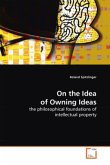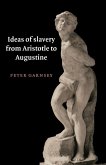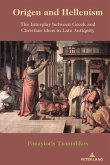Karl Marx's reinvention of the materialist 'Science of Ideas' as false consciousness, gave rise to the Marxist negative conception of ideology. Smithers argues that Marx's treatment of ideas and ideology was unjustified and that his 'negative conception' limited the understanding of ideology and stifled our comprehension of the nature and function of ideas. Marx was not alone in his failure to understand the relationship between ideas and all physical things but, his theory has had a far more dramatic affect upon later materialist thinkers than other theorists. The detailed analysis undertaken in this book reveals Marx's first premise of 'all human history' to be reified, false and contrived. This fact alone calls the validity of Historical Materialism into question and devalues the Marxist, negative conception of ideology. Casting off the Marxist 'negative conception', its limitations, its anthropocentric approach, Smithers rejects the notion that humans are sanctified and instead finds that ideas are part of the natural order. Controversially, Smithers suggests that 'ideas' are not just thoughts, but naturally emergent principles that relate to the construction of all things.
Bitte wählen Sie Ihr Anliegen aus.
Rechnungen
Retourenschein anfordern
Bestellstatus
Storno








